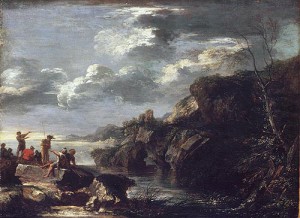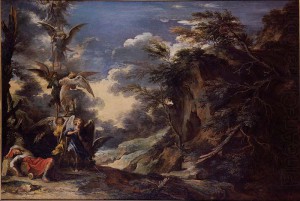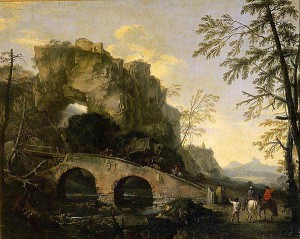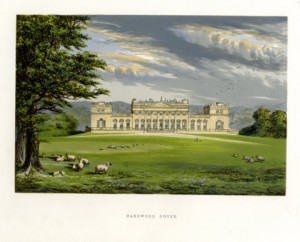Excerpts from Edmund Burke’s, A Philosophical Enquiry into the Origin of Our Ideas of the Sublime and the Beautiful, 1767.
[The Sublime]
Whatever is fitted in any sort to excite the ideas of pain and danger, that is to say, whatever is in any sort terrible, or is conversant about terrible objects, or operates in a manner analogous to terror, is the source of the sublime, that is, it is productive of the strongest emotion which the mind is capable of feeling. I say the strongest emotion, because I am satisfied the ideas of pain are much more powerful than those which enter on the part of pleasure. . . [but] When danger or pain press too nearly, they are incapable of giving any delight, and are simply terrible; but at certain distances, and with certain modifications, they may be, and they are delightful, as we every day experience.
[Of the Passion Caused by the Sublime]
The passion caused by the great and sublime in nature, when those causes operate most powerfully, is astonishment; and astonishment is that state of the soul, in which all its motions are suspended, with some degree of horror. . . Hence arises the great power of the sublime, that far from being produced by them, it anticipates our reasonings, and hurries us on by an irresistible force. Astonishment, as I have said, is the effect of the sublime in its highest degree, the inferior effects are admiration, reverence, and respect.
[Terror]
No passion so effectually robs the mind of all its powers of acting and reasoning as fear. For fear being an apprehension of pain or death, it operates in a manner that resembles actual pain. Whatever therefore is terrible, with regard to sight, is sublime too.
[Power]
The power which arises from institution in kings and commanders, has the same connection with terror. Sovereigns are frequently addressed with the title ofdread majesty. And it may be observed, that young persons little acquainted with the world, and who have not been used to approach men in power, are commonly struck with an awe which takes away the free use of their faculty.
[The Sublime and Beautiful Compared]
On closing this general view of beauty, it naturally occurs, that we should compare it with the sublime; and in this comparison there appears a remarkable contrast. For sublime objects are vast in their dimensions, beautiful ones comparatively small, beauty should be smooth and polished . . . beauty should not be obscure, the great ought to be dark and gloomy; beauty should be light and delicate; the great ought to be solid, and even massive. They are indeed ideas of a very different nature, one being founded on pain, the other on pleasure.
Excerpts from William Gilpin’s Three Essays: On Picturesque Beauty; On Picturesque Travel; and On Sketching Landscape, 1792.
[Picturesque beauty] we pursue through the scenery of nature; and examine it by the rules of painting. We seek it among all the ingredients of landscape — trees — rocks — broken grounds — woods — rivers — lakes — plains — vallies — mountains — and distances. These objects in themselves produce infinite variety. No two rocks, or trees are exactly the same. They are varies, a second time, by combination, and almost as much, a third time, by different lights, and shades,and other aereal effects.
and
But among all the objects of art, the picturesque eye is perhaps most inquisitive after the elegant relics of ancient architecture; the ruined tower, the gothic arch, the remains of castles and abbeys. These are the richest legacies of art. They are consecrated by time; and almost deserve the veneration we pay to the works of nature itself.
Thus universal are the objects of picturesque travel. We pursue beauty in every shape; through nature, through art; and all its various arrangements in form, and colour; admiring it in the grandest objects, and not rejecting it in the humblest. [. . . ] The first source of amusement to the picturesque traveller, is the pursuit of his object — the expectation of new scenes continuing opening, and arising to his view. We suppose the country to be unexplored . . . Every distant horizon promises something new; and with this pleasing expectation we follow nature through all her walks. We pursue her from hill to dale; and hunt after those various beauties, with which she everywhere abounds.



